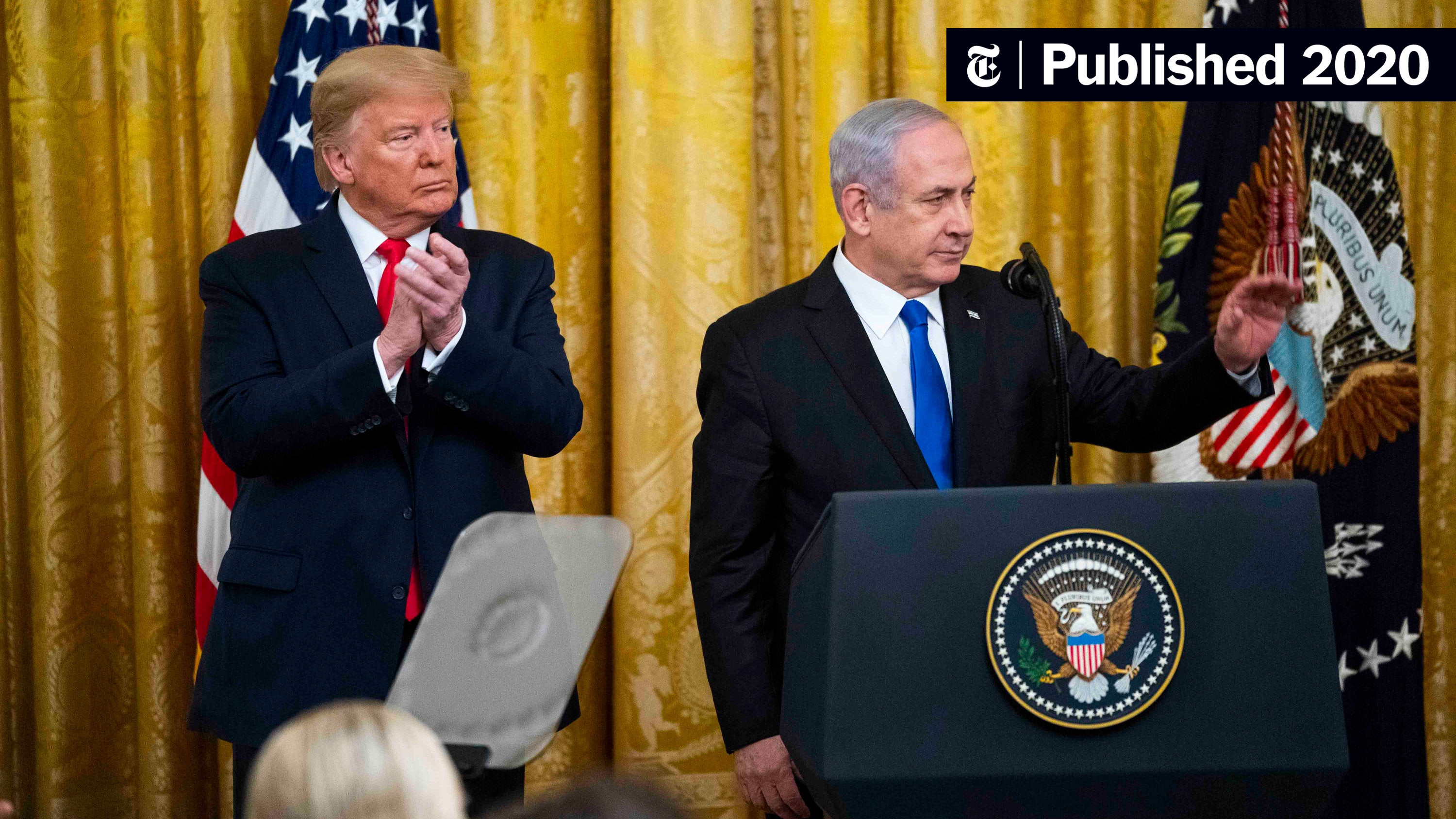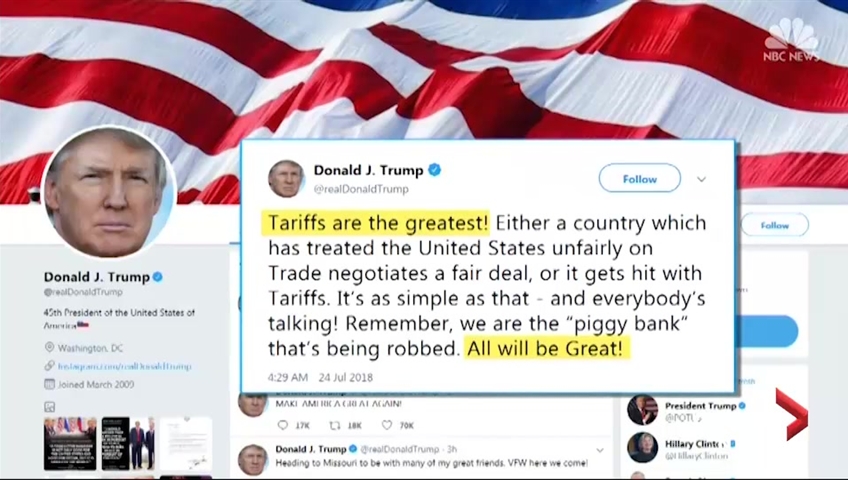Evaluating The Outcomes Of Trump's Recent Middle East Trip

Table of Contents
Assessing the Abraham Accords' Continued Impact
The Abraham Accords, brokered largely through Trump's administration, remain a central point of discussion when evaluating Trump's Middle East Trip. The normalization agreements between Israel and several Arab nations – including the UAE, Bahrain, Morocco, and Sudan – were a significant achievement. However, assessing their continued impact requires a nuanced understanding of both progress and persistent challenges.
- Increased trade and tourism: Since the signing of the accords, we have witnessed a noticeable increase in trade and tourism between Israel and participating Arab nations. This economic cooperation represents a tangible benefit of the agreements and fosters closer ties.
- Challenges in implementation: Despite the initial optimism, fully implementing the accords and overcoming deep-seated regional tensions remains a significant challenge. Historical grievances and ongoing conflicts continue to cast a shadow over these nascent relationships. The Palestinian issue, in particular, remains a major obstacle.
- Long-term effects on regional stability: The long-term effects of the Abraham Accords on regional stability are still unfolding. While some argue that they contribute to a more cooperative regional environment, others remain skeptical, emphasizing the unresolved core issues in the region. The impact on the Israeli-Palestinian conflict is a critical factor in determining the ultimate success or failure of the accords. New developments and challenges related to the Abraham Accords, such as shifting regional alliances and ongoing geopolitical tensions, need continuous monitoring and analysis.
Evaluating the Impact on the Israeli-Palestinian Conflict
Trump's Middle East Trip and his administration's approach to the Israeli-Palestinian conflict remain highly controversial. The trip yielded little to no tangible progress towards a two-state solution, a long-standing goal of international diplomacy.
- Trump's peace plan: Trump's proposed peace plan, released before his trip, was largely rejected by the Palestinian Authority, who felt it heavily favored Israel. This highlights the deeply entrenched divisions and the immense difficulty in achieving a lasting peace.
- Renewed efforts towards peace talks: Despite efforts, the trip did not initiate substantive or renewed peace talks between the two sides. The lack of progress highlights the complexity and entrenched nature of this conflict.
- Ongoing violence and tensions: The violence and tensions in the region persist, undermining any potential for immediate progress towards a lasting peace. The underlying issues of land, settlements, and the status of Jerusalem continue to fuel conflict. The role of regional players like Iran also significantly influences the conflict dynamics. Understanding these influences is crucial for a comprehensive evaluation of Trump's impact.
Analyzing the Trip's Influence on Regional Alliances and Power Dynamics
Trump's Middle East Trip significantly influenced regional alliances and power dynamics. The trip's impact extended beyond the Abraham Accords, reshaping some relationships while reinforcing others.
- US relationships with key players: The trip impacted the relationships between the US and key regional players such as Saudi Arabia and Iran. While some alliances were seemingly strengthened, others were strained, adding to the complexity of the Middle East's power dynamics.
- Shifting alliances and new partnerships: The Abraham Accords themselves illustrate a shift in alliances. The willingness of some Arab nations to normalize relations with Israel represents a significant realignment in regional power dynamics.
- Future geopolitical landscape: Trump's Middle East Trip played a role in shaping the future geopolitical landscape of the region. The long-term effects of these changes in alliances and power dynamics will continue to influence stability and cooperation in the area. Changes in the regional balance of power post-trip require careful monitoring and assessment to comprehend the full extent of its effects.
Examining the Economic Outcomes of Trump's Middle East Trip
The economic aspects of Trump's Middle East Trip were multifaceted. While some agreements were struck, assessing the long-term economic consequences requires careful analysis.
- Trade deals and investment: The trip may have facilitated some new trade deals and investment opportunities, particularly between Israel and the Arab nations involved in the Abraham Accords. However, a detailed analysis of the economic benefits requires further evaluation.
- Energy security and cooperation: Energy security and cooperation were likely discussed during the trip, as energy is a crucial factor in the Middle East’s geopolitical stability and economic development. However, any tangible outcomes in this area need further scrutiny.
- Long-term economic consequences: The long-term economic consequences for both the US and the Middle East are hard to predict. The success of any economic agreements struck during the trip will depend on various factors, including regional stability and global economic conditions. The long-term implications of these economic agreements require further study and analysis.
Addressing Criticisms and Controversies Surrounding the Trip
Trump's Middle East Trip was not without its criticisms and controversies. Several aspects of his approach and the outcomes of the visit drew considerable criticism.
- Human rights concerns: Human rights concerns were raised during and after the trip, particularly regarding the treatment of Palestinians and the human rights records of some of the nations involved in the Abraham Accords. This criticism underscores the importance of balanced considerations within diplomatic efforts.
- Lack of progress on specific issues: Critics pointed to the lack of significant progress on key issues, such as the Israeli-Palestinian conflict, as a major shortcoming of the trip. The criticisms highlight the need for comprehensive solutions that address the underlying concerns of all parties involved.
- Public opinion and media reactions: Public opinion and media reactions to the trip and its outcomes were mixed, reflecting the diverse perspectives and the lack of consensus regarding Trump's approach. A balanced evaluation must consider diverse perspectives and media interpretations to understand the overall impact and significance of the trip.
Conclusion
Trump's recent Middle East trip left a complex legacy, marked by both successes and shortcomings. While the Abraham Accords represent a significant diplomatic achievement, the trip's impact on the Israeli-Palestinian conflict remains highly contested. Further, its influence on broader regional power dynamics and economic relations requires ongoing assessment. Understanding the multifaceted outcomes of Trump's Middle East trip necessitates a comprehensive analysis considering various perspectives and long-term consequences. To gain a deeper understanding of the complexities of this significant event, further research into Trump's Middle East policy and its ramifications is crucial. Continue your exploration by researching related articles and news reports on Trump's Middle East Trip to develop a more nuanced perspective.

Featured Posts
-
 Amanda Bynes Former Classmate Details Troubling Past Behavior
May 18, 2025
Amanda Bynes Former Classmate Details Troubling Past Behavior
May 18, 2025 -
 Majority Of Dutch Oppose Eus Response To Trump Import Tariffs
May 18, 2025
Majority Of Dutch Oppose Eus Response To Trump Import Tariffs
May 18, 2025 -
 Navigating Metropolis Japan Transportation Culture And Daily Life
May 18, 2025
Navigating Metropolis Japan Transportation Culture And Daily Life
May 18, 2025 -
 Doom The Dark Ages A Game For All Players
May 18, 2025
Doom The Dark Ages A Game For All Players
May 18, 2025 -
 Maneskins Jimmy Kimmel Live Appearance Damiano Davids Stellar Performance
May 18, 2025
Maneskins Jimmy Kimmel Live Appearance Damiano Davids Stellar Performance
May 18, 2025
Latest Posts
-
 Florida Space Coast Economic Development Commission Awarded 800 K Grant
May 18, 2025
Florida Space Coast Economic Development Commission Awarded 800 K Grant
May 18, 2025 -
 Check Bbc Three Hd For Easy A Full Episode Listings
May 18, 2025
Check Bbc Three Hd For Easy A Full Episode Listings
May 18, 2025 -
 Find Easy A On Bbc Three Hd Your Tv Guide
May 18, 2025
Find Easy A On Bbc Three Hd Your Tv Guide
May 18, 2025 -
 Easy A Bbc Three Hd Tv Guide And Listings
May 18, 2025
Easy A Bbc Three Hd Tv Guide And Listings
May 18, 2025 -
 Amanda Bynes Only Fans Debut Challenges And Opportunities
May 18, 2025
Amanda Bynes Only Fans Debut Challenges And Opportunities
May 18, 2025
